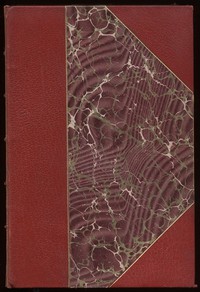Guy Mannering; or, The Astrologer — Complete by Walter Scott (good books to read in english .TXT) 📗

- Author: Walter Scott
Book online «Guy Mannering; or, The Astrologer — Complete by Walter Scott (good books to read in english .TXT) 📗». Author Walter Scott
‘Why,’ replied Jack, ‘the people got rusty about it, and would not deal, and they had bought so many brooms that--’
‘Well, for all that,’ said the other, ‘I think we should be down upon the fellow one of these darkmans and let him get it well.’
‘But old Meg’s asleep now,’ said another; ‘she grows a driveller, and is afraid of her shadow. She’ll sing out, some of these odd-come-shortlies, if you don’t look sharp.’
‘Never fear,’ said the old gipsy man; ‘Meg’s true-bred; she’s the last in the gang that will start; but she has some queer ways, and often cuts queer words.’
With more of this gibberish they continued the conversation, rendering it thus, even to each other, a dark obscure dialect, eked out by significant nods and signs, but never expressing distinctly, or in plain language, the subject on which it turned. At length one of them, observing Meg was still fast asleep, or appeared to be so, desired one of the lads ‘to hand in the black Peter, that they might flick it open.’ The boy stepped to the door and brought in a portmanteau, which Brown instantly recognised for his own. His thoughts immediately turned to the unfortunate lad he had left with the carriage. Had the ruffians murdered him? was the horrible doubt that crossed his mind. The agony of his attention grew yet keener, and while the villains pulled out and admired the different articles of his clothes and linen, he eagerly listened for some indication that might intimate the fate of the postilion. But the ruffians were too much delighted with their prize, and too much busied in examining its contents, to enter into any detail concerning the manner in which they had acquired it. The portmanteau contained various articles of apparel, a pair of pistols, a leathern case with a few papers, and some money, etc., etc. At any other time it would have provoked Brown excessively to see the unceremonious manner in which the thieves shared his property, and made themselves merry at the expense of the owner. But the moment was too perilous to admit any thoughts but what had immediate reference to self-preservation.
After a sufficient scrutiny into the portmanteau, and an equitable division of its contents, the ruffians applied themselves more closely to the serious occupation of drinking, in which they spent the greater part of the night. Brown was for some time in great hopes that they would drink so deep as to render themselves insensible, when his escape would have been an easy matter. But their dangerous trade required precautions inconsistent with such unlimited indulgence, and they stopped short on this side of absolute intoxication. Three of them at length composed themselves to rest, while the fourth watched. He was relieved in this duty by one of the others after a vigil of two hours. When the second watch had elapsed, the sentinel awakened the whole, who, to Brown’s inexpressible relief, began to make some preparations as if for departure, bundling up the various articles which each had appropriated. Still, however, there remained something to be done. Two of them, after some rummaging which not a little alarmed Brown, produced a mattock and shovel; another took a pickaxe from behind the straw on which the dead body was extended. With these implements two of them left the hut, and the remaining three, two of whom were the seamen, very strong men, still remained in garrison.
After the space of about half an hour, one of those who had departed again returned, and whispered the others. They wrapped up the dead body in the sea cloak which had served as a pall, and went out, bearing it along with them. The aged sibyl then arose from her real or feigned slumbers. She first went to the door, as if for the purpose of watching the departure of her late inmates, then returned, and commanded Brown, in a low and stifled voice, to follow her instantly. He obeyed; but, on leaving the hut, he would willingly have repossessed himself of his money, or papers at least, but this she prohibited in the most peremptory manner. It immediately occurred to him that the suspicion of having removed anything of which he might repossess himself would fall upon this woman, by whom in all probability his life had been saved. He therefore immediately desisted from his attempt, contenting himself with seizing a cutlass, which one of the ruffians had flung aside among the straw. On his feet, and possessed of this weapon, he already found himself half delivered from the dangers which beset him. Still, however, he felt stiffened and cramped, both with the cold and by the constrained and unaltered position which he had occupied all night. But, as he followed the gipsy from the door of the hut, the fresh air of the morning and the action of walking restored circulation and activity to his benumbed limbs.
The pale light of a winter’s morning was rendered more clear by the snow, which was lying all around, crisped by the influence of a severe frost. Brown cast a hasty glance at the landscape around him, that he might be able again to know the spot. The little tower, of which only a single vault remained, forming the dismal apartment in which he had spent this remarkable night, was perched on the very point of a projecting rock overhanging the rivulet. It was accessible only on one side, and that from the ravine or glen below. On the other three sides the bank was precipitous, so that Brown had on the preceding evening escaped more dangers than one; for, if he had attempted to go round the building, which was once his purpose, he must have been dashed to pieces. The dell was so narrow that the trees met in some places from the opposite sides. They were now loaded with snow instead of leaves, and thus formed a sort of frozen canopy over the rivulet beneath, which was marked by its darker colour, as it soaked its way obscurely through wreaths of snow. In one place, where the glen was a little wider, leaving a small piece of flat ground between the rivulet and the bank, were situated the ruins of the hamlet in which Brown had been involved on the preceding evening. The ruined gables, the insides of which were japanned with turf-smoke, looked yet blacker contrasted with the patches of snow which had been driven against them by the wind, and with the drifts which lay around them.
Upon this wintry and dismal scene Brown could only at present cast a very hasty glance; for his guide, after pausing an instant as if to permit him to indulge his curiosity, strode hastily before him down the path which led into the glen. He observed, with some feelings of suspicion, that she chose a track already marked by several feet, which he could only suppose were those of the depredators who had spent the night in the vault. A moment’s recollection, however, put his suspicions to rest. It was not to be thought that the woman, who might have delivered him up to her gang when in a state totally defenceless, would have suspended her supposed treachery until he was armed and in the open air, and had so many better chances of defence or escape. He therefore followed his guide in confidence and silence. They crossed the small brook at the same place where it previously had been passed by those who had gone before. The footmarks then proceeded through the ruined village, and from thence down the glen, which again narrowed to a ravine, after the small opening in which they were situated. But the gipsy no longer followed the same track; she turned aside, and led the way by a very rugged and uneven path up the bank which overhung the village. Although the snow in many places hid the pathway, and rendered the footing uncertain and unsafe, Meg proceeded with a firm and determined step, which indicated an intimate knowledge of the ground she traversed. At length





Comments (0)